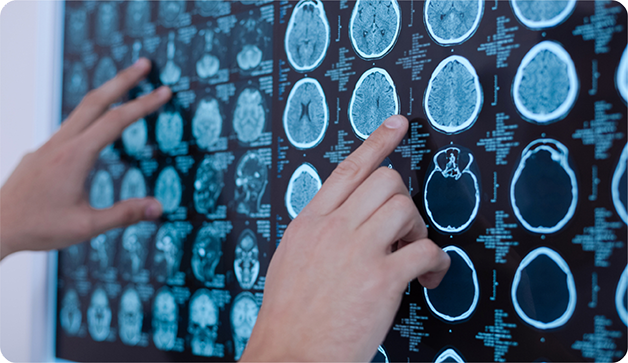Brain Tumor/ Brain Cancer
Brain cancer or brain tumor is an abnormal cell growth inside the brain. Some tumors are non-cancerous (benign) and some are cancerous (malignant). The tumor can either develop inside the brain itself or develop in other parts of the body and travel to the brain through blood vessels. Regardless of the development, the severity of a brain tumor, however, depends on its ability to grow. The growth and location of the tumor impact the functioning of the nervous system and the entire body.


Types of Brain Cancer
Depending on the origin and growth rate, brain tumors are of the following types
- Primary Brain Tumors: Tumors that develop within the brain are called primary brain tumors. Primary brain tumors are usually benign and remain localized in the cells. Depending on the type of brain cell affected these tumors are further classified into different types as gliomas, meningiomas pituitary adenomas, vestibular schwannomas, or medulloblastoma
- Secondary Brain Tumors : Secondary brain tumors are usually malignant and spread rapidly. These tumors travel to the brain from other body organs and are called throughout the body






